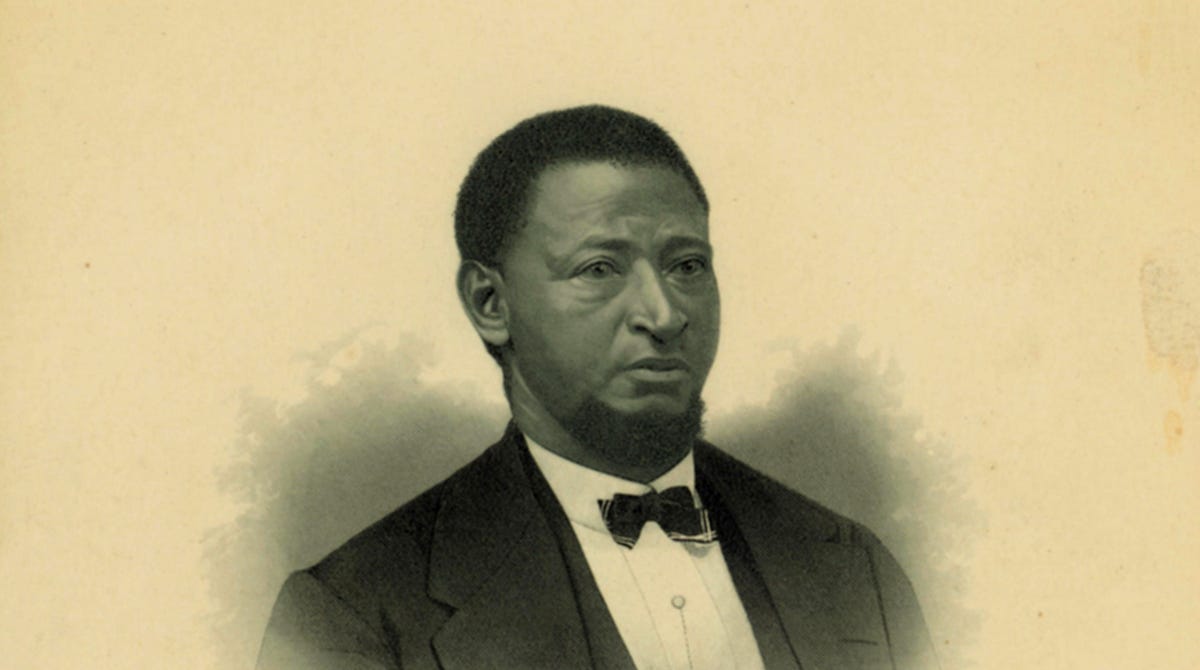5fish
Well-Known Member
- Joined
- Jul 28, 2019
- Messages
- 10,797
- Reaction score
- 4,579
The first schools to be segregated were in Iowa in 1867... Susan Clark file a case in 1867 so she could go to school in Iowa...
On September 12, 1867, 12-year-old Susan Clark was denied admission to Muscatine's Second Ward Common School Number 2 because she was African American. Her father, Alexander Clark, a determined businessman of Muscatine, acted to resist racism and the segregation of Iowa’s schools. Clark initiated an Iowa Supreme Court case to allow his daughter to attend the white-only public school. The Iowa Supreme Court affirmed the district court's decision that children of color could not be refused admission to Iowa's district schools.
Here is the person that file the case Susan Clark dad...

 en.wikipedia.org
en.wikipedia.org
Alexander G. Clark (February 25, 1826 – May 31, 1891) was an African-American businessman and activist who served as United States Ambassador to Liberia in 1890-1891, where he died in office. Clark is notable for suing in 1867 to gain admission for his daughter to attend a local public school in Muscatine, Iowa. The case of Clark v. Board of School Directors achieved a constitutional ruling for integration from the Iowa state supreme court in 1868, 86 years before the United States Supreme Court decision of Brown v. Board of Education (1954). He was a prominent leader in winning a state constitutional amendment that gained the right for African Americans in Iowa to vote (1868). Active in church, freemasonry, and the Republican Party, he became known for his speaking skills and was nicknamed "the Colored Orator of the West."[1] He earned a law degree and became co-owner and editor of The Conservator in Chicago. His body was returned from Liberia in 1892 and buried in Muscatine, where his house has been preserved.
Here is Susan Clark...

 discovermuscatine.com
discovermuscatine.com
Susan V. Clark was just thirteen years old when she became the first Black student in the United States to integrate a public school through a court order. Her suit, decided by the Iowa Supreme Court in 1868, gave all Iowa children the right to attend public school regardless of race, religion, nationality, or any other distinction.
On September 12, 1867, 12-year-old Susan Clark was denied admission to Muscatine's Second Ward Common School Number 2 because she was African American. Her father, Alexander Clark, a determined businessman of Muscatine, acted to resist racism and the segregation of Iowa’s schools. Clark initiated an Iowa Supreme Court case to allow his daughter to attend the white-only public school. The Iowa Supreme Court affirmed the district court's decision that children of color could not be refused admission to Iowa's district schools.
Here is the person that file the case Susan Clark dad...

Alexander Clark - Wikipedia
 en.wikipedia.org
en.wikipedia.org
Alexander G. Clark (February 25, 1826 – May 31, 1891) was an African-American businessman and activist who served as United States Ambassador to Liberia in 1890-1891, where he died in office. Clark is notable for suing in 1867 to gain admission for his daughter to attend a local public school in Muscatine, Iowa. The case of Clark v. Board of School Directors achieved a constitutional ruling for integration from the Iowa state supreme court in 1868, 86 years before the United States Supreme Court decision of Brown v. Board of Education (1954). He was a prominent leader in winning a state constitutional amendment that gained the right for African Americans in Iowa to vote (1868). Active in church, freemasonry, and the Republican Party, he became known for his speaking skills and was nicknamed "the Colored Orator of the West."[1] He earned a law degree and became co-owner and editor of The Conservator in Chicago. His body was returned from Liberia in 1892 and buried in Muscatine, where his house has been preserved.
Here is Susan Clark...

Susan Clark 1854-1925 | Discover Muscatine
Who was Susan Clark? When the Muscatine school board renamed the combined middle schools for her in 2019, many residents said they had never heard of her. Susan V. Clark was just thirteen years old when she became the first Black student in the United States to integrate a public…
 discovermuscatine.com
discovermuscatine.com
Susan V. Clark was just thirteen years old when she became the first Black student in the United States to integrate a public school through a court order. Her suit, decided by the Iowa Supreme Court in 1868, gave all Iowa children the right to attend public school regardless of race, religion, nationality, or any other distinction.



